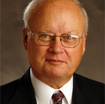Commentary on Matthew 11:2-11
In the Gospel for the previous Sunday (Matthew 3:1-12), we heard the stirring words of John the Baptist at the Jordan River concerning the one who is to come.
The Messiah, he said, will baptize with the Holy Spirit and with fire, and he will exercise judgment. In the fashion of a swashbuckler, his coming will be dramatic, to say the least.
But Jesus does not really fit the mold. He comes on the scene as one who proclaims the kingdom of God, calls upon people to trust in God, heals the sick, and befriends tax collectors and persons labeled “sinners.” It is little wonder that John, now sitting in prison with time to think, questions whether Jesus is the one to come or not. Jesus fits neither John`s expectations nor those of Jewish messianism in general. John’s question in 11:3 is therefore totally understandable: “Are you the one who is to come, or are we to wait for another?”
The question of John and the response of Jesus in 11:2-6 are actually relayed by disciples of John the Baptist. (That John had disciples is attested not only here and in its parallel at Luke 7:18-23, but also in John 1:35; 3:25.) John is now not certain whether Jesus is the “coming one,” an expression which refers to the Messiah as the one to come (Matthew 21:9, Mark 11:9, Luke 19:38, John 12:13, Heb 10:37), based on Old Testament imagery (Psalm 118:26).
The reply of Jesus is to give neither a yes nor a no to the question. It is typical of the Synoptic Gospels that Jesus does not declare openly that he is the Messiah. He does not proclaim himself; he proclaims the kingdom of God. And look what is happening. The kingdom is breaking in upon the world. That which Isaiah envisioned in his prophetic oracles (26:19; 29:18-19; 35:5-6; 61:1) is now taking place. Whoever perceives the connections and concludes that Jesus does the work of the coming one is blessed (11:6).
Following that declaration, the subject is changed. Jesus asks the crowds three questions about John (11:7-9). The point of the three questions is to drive home the fact that the people went out to see a prophet (11:9). Indeed, John is “more than a prophet” in that he had a superior role. He was to be the herald of the Messiah’s coming, preparing his way. He is the messenger
promised by the last of the prophets (Malachi 3:1 is quoted), even Elijah who is to come (11:14, alluding to Malachi 4:5). John is extolled as the greatest of human beings (11:11a).
Yet there are persons even greater (11:11b)! They are greater in the sense that, while John stood before the coming of the kingdom, the disciples of Jesus (even the least of them) stand within it. The response of Jesus to John’s question is to portray messiahship in a new way.
The prevailing view in both the Old Testament and other ancient Jewish sources was that the Messiah would be a powerful ruler, one whose reign would usher in a new era of peace. But that does not mean that Jesus creates a picture of the Messiah unrelated to the sources, for the words of 11:5 are straight out of the Scriptures of Israel.
They speak of the blessings of the messianic age, which include both healing and good news to the poor. One finds both connections and fractures in the Scriptures. God is not bound to his own best (or even canonical) witnesses in all details, and that is most evident in regard to the profile of the Messiah. Many people, not just John, found Jesus to be an enigma. Many do today. A sermon on this passage from Matthew’s Gospel could focus on the way that Jesus speaks of himself and about us, his disciples.
Particularly in 11:5 Jesus speaks of his mission in one of the clearest statements in the gospels about it: “the blind receive their sight, the lame walk, the lepers are cleansed, the deaf hear, the dead are raised, and the poor have good news brought to them” (11:5).
These words speak of the Messiah in a striking way. Jesus did not come to gain earthly power. He came among the people to serve them, bringing life. Instead of casting away those persons who are at the margins of society — persons that many would want to send away and out of sight — it is precisely to those people that the Messiah came to restore and save.
We live in a world where people are often divided into two categories. They are either well to do, popular, well-connected, and valuable — or they are those who are down and out for one reason or another and are not valued.
But the Season of Advent intrudes into the history of the world and especially into the lives of Christians. The mood, the hymns, and the prayers of this season seek to open us up to new ways of thinking and acting.
It is a time of expectation. It is a time of waiting for the coming of the Savior into the world. And what happens when he comes? He comes among us in his Word and through the Spirit to stir us up to get involved in his ministry among those who are left out, on the margins of society, and who are in need.
Another verse of particular importance, and which speaks more directly about us, is 11:11 where Jesus declares that “the least in the kingdom of heaven is greater than [John the Baptist].”
John did not live to see the ministry of Jesus unfold; he was executed by Herod during the time of Jesus’ ministry (14:1-12). But we — even we, as ordinary Christians, who are “the least in the kingdom” in comparison to the great saints of Scripture and history — have seen the ministry of Jesus come to its completion, followed by his death and resurrection and the birth of the church.
We are blessed and fortunate to be living on this side of Jesus’ resurrection and to be a part of his body, the church. We are not people adrift in the world with uncertainty about who we are, how we should live, or where we are going. We belong to his community of believers, dedicated to him, instructed by him, and carrying out his ministry. As his disciples, and with mutual support, we align ourselves with his ministry in our witness to the gospel and in our works of mercy and our care for the world.


December 15, 2013